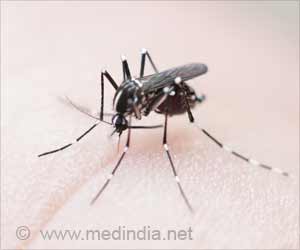Genetically modified Aedes aegypti mosquito experiment in the Florida Keys will reduce the spread of mosquito-borne diseases by a self-limiting approach to suppress their population.

these genetically modified male mosquitoes carry a gene that makes their female progeny dependent on the antibiotic tetracycline so that disease causing female die early to stop their population growth. The modified insects eventually die off, making this approach self-limiting.
‘It’s one of the top three mosquitoes in the world in the number of diseases it can spread’, says Don Yee, an aquatic ecologist at the University of Southern Mississippi in Hattiesburg, who studies mosquitoes.
The results of the experiment give an insight into well-targeted pest control strategy that eliminates disease-spreading bugs without spraying any chemicals.
This experiment will directly translate into an epidemiological impact effectively reducing disease transmission. But there is no scientific proof that it will not cause undue harm to the fragile ecosystem. .
Advertisement









